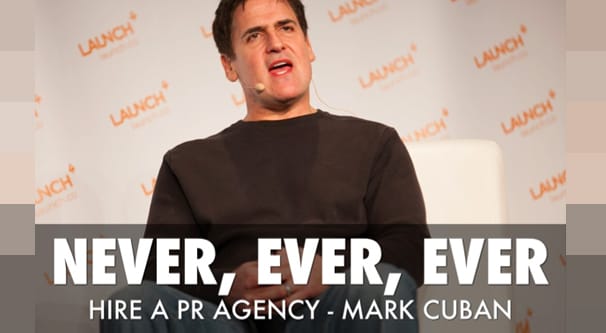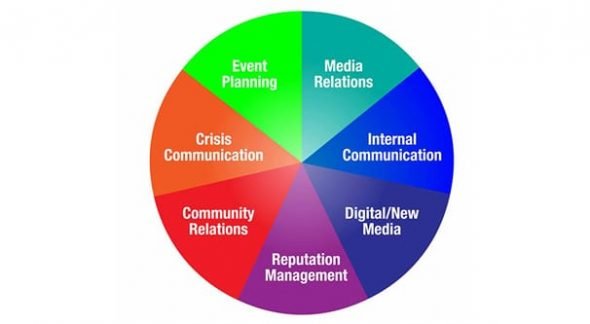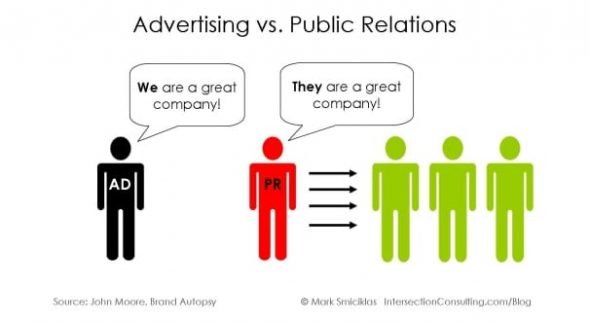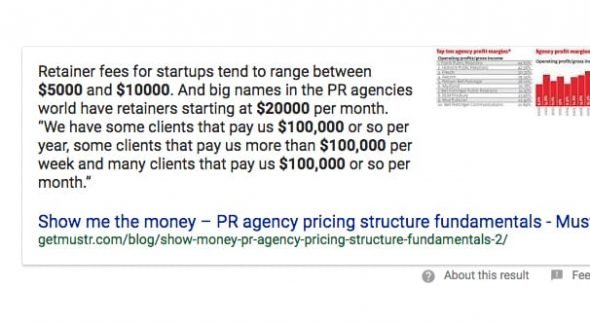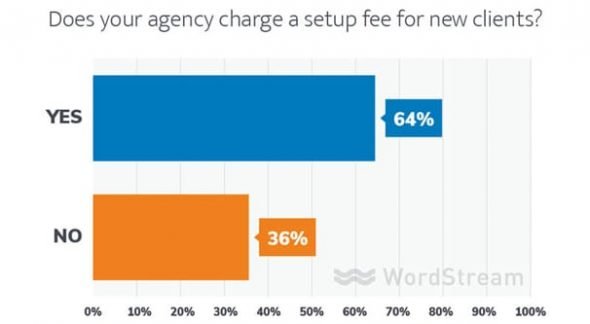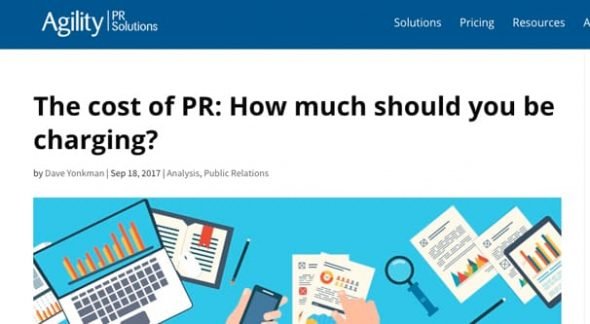As you’ve no doubt realized from reading this blog for a while, guest posting is a lot of work. Everything from the site research to the pitch writing to the follow-up combined can make basically a full time job. It’s no wonder that a lot of people turn to hiring a PR firm instead.
The Benefits of PR
A PR firm – PR being Public Relations – can be a huge benefit to a business, large or small. PR agencies can do a lot, though there’s also a lot of confusion about what they do.
So what does a PR firm do?
Essentially, a PR firm outsources guest posting and other forms of “earned” coverage. They’re one half of a coin, covering all of the free sources of traffic, links, reputation, and visibility that you can find. Depending on the agency, you’ll find them posting about your brand on blogs both large and small. You might also find yourself covered in magazine editorials, in interviews on local news channels or radio stations, and other forms of real media.
The other half of the coin, of course, is an advertising agency. Advertising agencies cover the paid half of the spectrum, with sponsored advertising, PPC ads on other sites, social media, and that sort of coverage.
The reason for the confusion in definition is that a lot of modern agencies will cover both halves of the coin. You’ll often find PR firms that will handle paid advertising as well for an additional fee, or advertising agencies that offer guest posting services.
There’s one reason why you might want to go for a PR agency instead of a cover-everything agency, and that’s depth of coverage. A “jack of all trades” agency might cover all the bases, but they might not have the depth of knowledge or resources available to make the most of it. They won’t have the same connections to get covered in the most relevant journals, programs, or websites.
Of course, they might have all of those resources, for a price. Hiring an all-encompassing agency is likely to give you a bunch of services you don’t really need, while charging you more than a specialized agency would.
On a more mechanical level, a PR firm might have certain specific duties like:
- Writing and distributing press releases.
- Writing speeches for your CEO or other board members to deliver at sponsored venues.
- Writing pitches for guest contributions for journalists or blogs.
- Organizing individual events for the purposes of managing a public reputation.
- Conducting market research to get a baseline of public opinion from which to build.
- Expanding business networks and contact lists with relevant connections.
- Creating content for blogs, websites, and other public-facing content streams.
- Managing public relations crises.
- Managing social media.
One of the more common errors people make when thinking about a PR firm is thinking they’re only useful when you’ve messed up and hurt your reputation. When, say, a restaurant has an issue and is bombed in reviews, that’s time to call in a PR firm.
In reality, a PR firm covers crises as one small part of what they do. They’re robustly useful in times of crisis and times of calm. A large part of what they do is building a positive reputation preemptively, to make a business more resilient to negative reviews or happenings. In a way, it’s preventative maintenance.
High-end businesses will often maintain both a public relations agency and an advertising agency at the same time. Some high-end agencies will specialize in both specifically for high-end clients.
Hiring PR or Hiring Advertising?
Smaller businesses often find themselves faced with a decision. With your limited budget, do you hire a PR agency, or do you hire an advertising agency?
There’s no right answer for you. In some cases, you can find an agency that will do both to a satisfactory, if not exemplary, level. In many cases, even those agencies are going to be outside of your budget range. You’re faced with the decision, and need to determine which you can cut.
Or, rather, not cut, but handle yourself. Both public relations and advertising are important enough that they need to be done, so you need to figure out which one you can do yourself. What you need to do, then, is take inventory of the skills you already have or that your team has, and which can be handled more easily.
Guest posting and other forms of outreach can be outsourced piecemeal. You can hire a virtual assistance to do your research and craft customized pitches, hire a freelance writer to write the posts, and perform the social follow-up on your own. This covers some of what a PR firm might be doing, but it doesn’t cover all the bases; it won’t get magazine coverage, coverage from specific journalists, or the kind of value that comes form a PR firm with deep connections. On the other hand, it’s serviceable until such time as you have a budget to hire such an agency.
On the other hand, maybe you would prefer to outsource your PR and handle your advertising in-house. Maybe you personally are somewhat experienced with Google or Facebook ads, and you’re capable of managing those ads on your own. In that case, while you might lose out on the experience of an ad agency, you can still get value out of ads while you outsource your public relations.
In either case, hiring the respective agency is going to be more valuable and more expensive than doing it yourself. Once you’ve reached a point where you can hire both, it’s worthwhile to give it a shot. You can always cancel a contract and go back to what you were doing before, of course.
The Cost of Hiring a PR Firm
So the question, then, is how much DOES it cost to hire a public relations firm? As you might expect, the answer is anywhere from “surprisingly little” to “as much as you can afford.” There are PR firms that cater specifically to small businesses. At the same time, there are PR firms that work exclusively with clients like Nike or Disney. The sky isn’t even the limit for prices when some of these companies can pay millions of dollars per month.
Since price ranges can be all over the place, let’s look at various sources of data and see what comes up.
First of all, Mustr reports a handful of different price points. For one thing, PR agencies generally charge retainers even if they aren’t actively doing anything, just to keep the contract active in case their services are needed. Such retainers can range from $2,000 to $20,000 per month, depending on the size of the agency and the range of their services.
Meanwhile, agencies will charge hourly rates for their services, while those services are active. It might not require 60 hours per day of work from multiple employees, but 60-hour weeks might not be out of the ordinary. Alternatively, with lower levels of service, 20-hour weeks might be more of a norm. Hourly rates can range from $100 to $350 or more, though obviously this can change according to the whims of the company.
A lot of modern companies will also charge based on their results. Perhaps they will charge per successfully published post, or per connection they refer, or per new customer. This kind of structure is far more common amongst advertising agencies, which tend to charge a percentage of spend plus a retainer, but you see it more and more among PR firms these days. The price here can be all over the place.
You might also encounter PR firms like this one that offer a range of different individual services, like overarching PR, specific inbound marketing, print marketing, brand development, web design, social media management, and strategic planning. A potential client can choose any or all of those services and will be charged based on which services they choose. Pricing, of course, varies accordingly, usually with multi-service or package discounts.
That, by the way, is one example of a company that covers both public relations and advertising, along with other business needs like web design. They’re a one-size-fits-all company, which can be beneficial for a small business that wants to keep track of as few contracts as possible, but might not have the depth of resources necessary to optimize each of those aspects individually.
Another source of data, from Agility PR, has some more pricing information. They’ve found that some agencies will invoice per project, with prices like $500 per press release, $250 per month as a retainer, $500 for a month of local print or radio coverage, $500 for local TV coverage, and double those numbers for national level coverage. This often amounts to anywhere from $2,000 to $5,000 per month between retainers and individual services.
Other hourly data indicates pricing anywhere from $100 per hour to $500 per hour for more specialized work. One item of note is that most hourly firms will also charge either a retainer or a minimum weekly or monthly number of hours. Even if you only give them 5 hours worth of projects in a week, they’ll charge you for a minimum of 15 hours of work, so it’s better to give them that much work at a time.
Retainers, again, can range from $1,500 to $20,000 per month, with some extremely high end companies charging even more. Obviously, if you’re a small business or a new startup, you shouldn’t be looking at the companies that charge $100K per month just to give you the time of day, but it’s worth knowing that such PR firms exist.
Between those sources and a few others, we can conclude that an average PR agency is going to charge a minimum of around $1,200 per month as a retainer, plus an hourly or performance based rate that comes out to another $500 to $5,000 per month. You’ll be looking, in general, at a minimum of $2,000 per month for the low-end PR firms. More likely, on average, you’re looking at closer to $10,000-$12,000 per month.
Should You Hire a PR Firm?
So the question becomes, with those kinds of prices, should you hire a PR firm?
Mark Cuban doesn’t think a startup needs one. In his opinion, a PR firm is going to cost too much for too little value in general, while also taking too long for a quick and agile startup to see the benefits. PR firms are better for established businesses or businesses with reputations they need to fix.
He’s not alone. Others have indicated that PR agencies are a waste of money, at least at the lower end of the scale. You’ll find agencies that tout bigger and better clients than they’ve managed to retain, or agencies that take credit for coverage they didn’t get themselves.
If you’ve done guest post outreach yourself, or worked on press release submission for your company, you know two things. First, you know how small the rewards for individual press releases or guest posts tend to be. Second, you know how – relatively – easy it is to do yourself. You don’t need a high paid marketing executive to write a pitch to a local newspaper; all you need is their contact information and ten minutes of your time. Now imagine paying $500 for that. Is that something you can justify?
For small businesses, new businesses, and startups, I don’t think a PR firm is the right choice. For larger and more established brands, particularly those with variable or negative reputations, hiring a PR agency to do damage control and recovery is probably a good idea. As always, though, the choice is up to you.
 ContentPowered.com
ContentPowered.com
